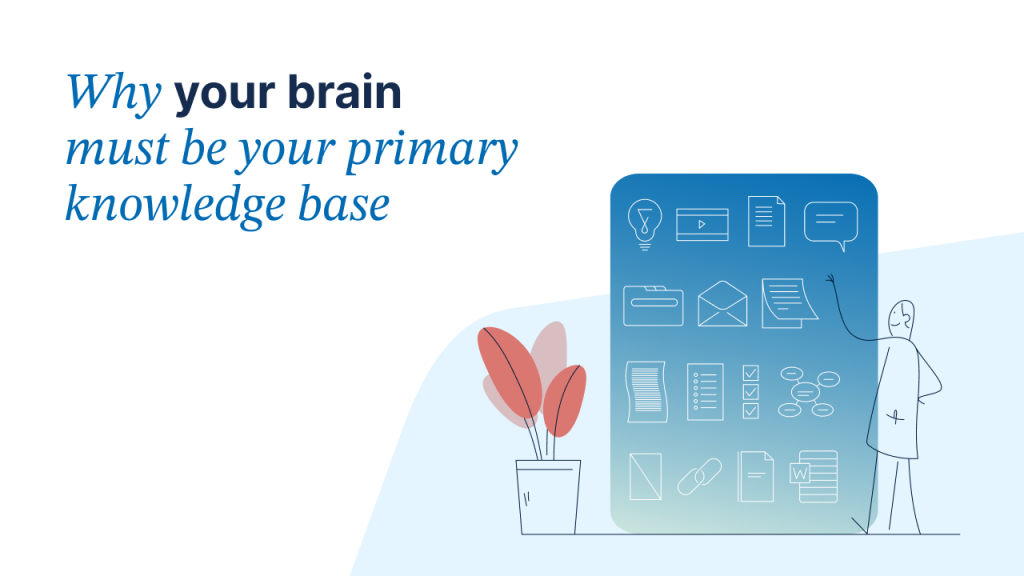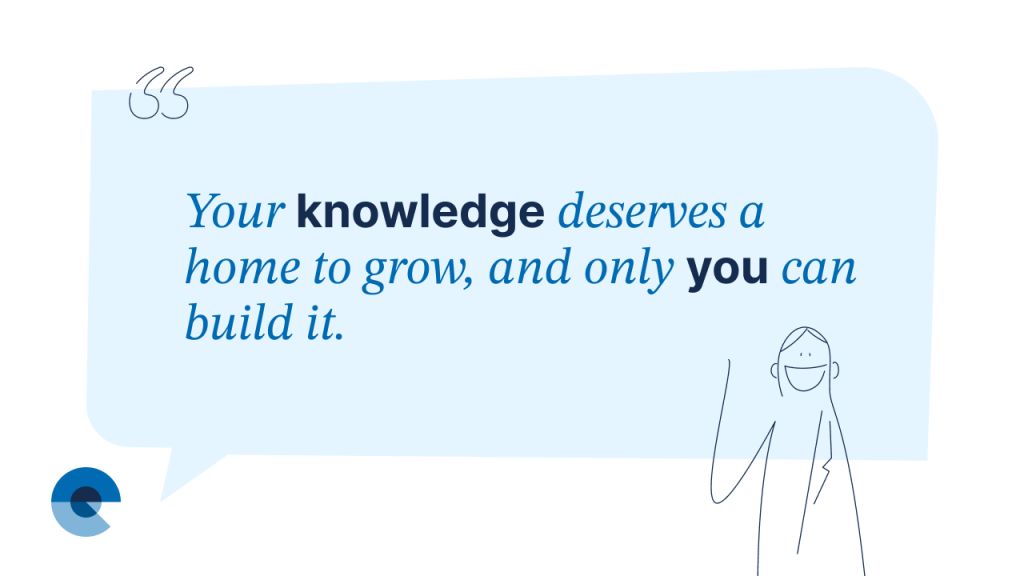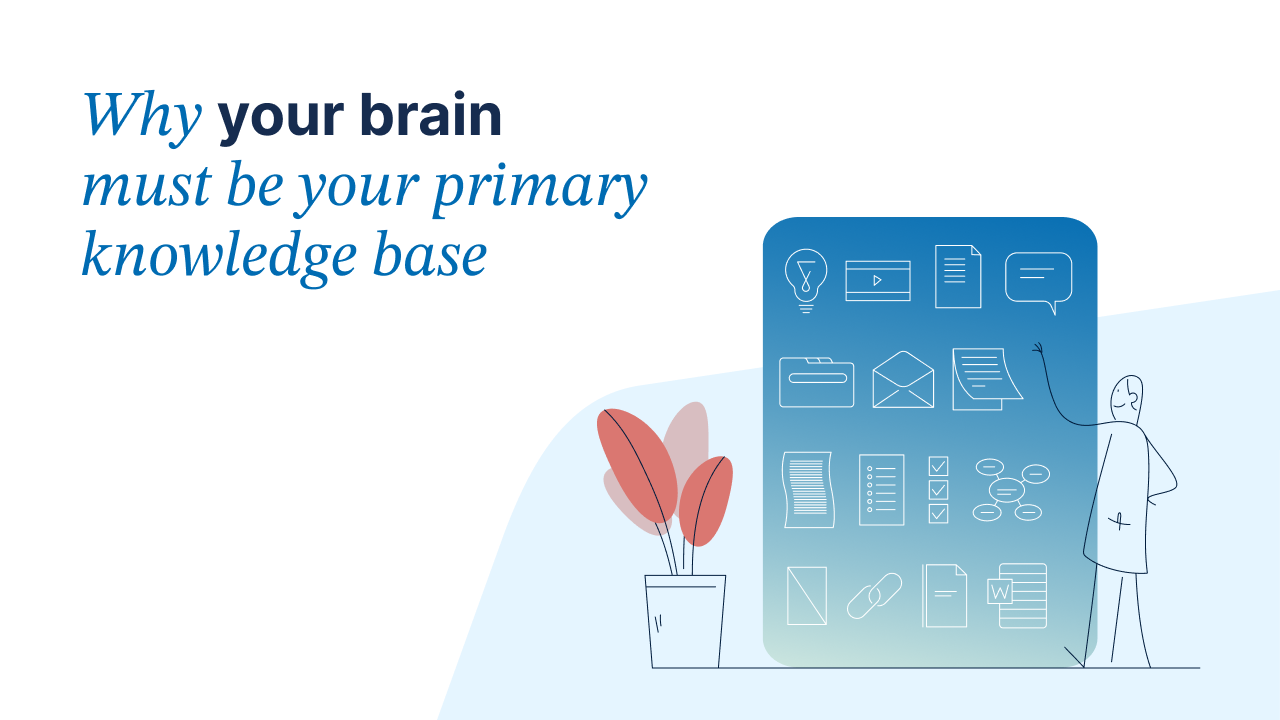The “calm before the storm” after graduation
Finishing medical school feels like stepping out of rapids onto solid ground, but the lull is brief. Residency, board exams, journal-club debates and impatient mentors sit just ahead—and so do thousands of new PDFs that appear each week in cardiology, neurosurgery, critical care and every other field you might one day touch. In that moment many young clinicians discover an unspoken rule of lifelong learning: nobody will curate knowledge for you anymore. This task is now entirely personal.

Why “just-in-time” search is no substitute for personal knowledge
Open a browser and any fact seems seconds away. Yet, cognitive science warns that performance collapses when the mind has to deal with fragmented, unsystematic information. John Sweller’s original work on Cognitive Load Theory showed that working memory can hold only a handful of items; the more pieces you must keep refreshing from an external search, the sooner reasoning falters and errors creep in.
Deep understanding, by contrast, is powered by long-term memory. Anders Ericsson demonstrated that physicians who engage in deliberate learning—repeated, goal-directed review and application of knowledge—develop mental “chunks” that free up cognitive space for problem-solving under pressure. Retrieval itself is part of the magic: Henry Roediger and Jeffrey Karpicke showed that actively retrieving information out of memory cements it far better than passively reading it.
In other words, quick searches and AI summaries cannot replace the re-wiring that happens when you integrate concepts into your own neural architecture. A consultant who quickly reads an information in a PDF may appear efficient, yet the colleague who knows the connections of the information with other “knowledge junks” ultimately makes better decisions for the patients and advances faster.
The silent enemy: software that only stores
Unfortunately, most digital tools treat scientific papers as inert files. PDFs freeze text into printable rectangles; reference managers help you cite those rectangles but do little to interrogate and connect them to knowledge in the same context. Almost all of the systems we build will help for archiving or quick retrieval, but not for the transformation of reading into durable, exam-ready understanding. They leave us clinicians too often stuck in a cycle of: download, read, forget.
What is missing is a scaffold that mirrors the brain’s own workflow—collect, connect in context, question, process, advance, —and that gently resurfaces concepts and ideas until they are second nature.

Elumity’s take: Extract the core message from the PDF, then send it to sleep
Elumity was designed to close that gap. The platform, developed by a startup devoted to personal knowledge management for more than 200 million academics and clinicians worldwide, frames every PDF as raw material for structured thinking. When you import an article, you can highlight a paragraph, convert or add it into a topic card and pin it next to earlier findings on the same topic or context. Each card links back to its source but also lives in a growing semantic map, so a new RCT on subarachnoid haemorrhage instantly sits beside your own notes on aneurysm screening guidelines.
Because the cards form a network, Elumity can quiz you on them at spaced intervals, in digestible pieces, according to the time you want to invest, echoing the testing-effect literature. Your reference list updates itself as you read, eliminating citation chaos when it is time to draft a manuscript. And the integrated writing workspace keeps every claim tethered to primary evidence, reducing the mental friction of switching between apps – including the easiest reference manager on the market.
The goal is not merely storage but conversion: turning passive reading moments into active retrieval prompts, reflective annotations and eventually the fluency that Sweller, Ericsson and Roediger describe.
Reclaiming agency in an age of information excess
Medicine will never slow its publication rate, and generative AI will only accelerate the torrent. The strategic question is therefore not how to read faster, but how to decide which findings deserve a place in your personal cognitive library.
That library must live chiefly inside your head. Search engines and language models can point to useful fragments. The science of learning is unequivocal: building that inner structure is slower than clicking “Ask,” but it is the very essence of expertise.
Elumity offers one concrete path toward that discipline—an environment where each highlight is a seed, each card a connection, and the whole collection a garden under deliberate cultivation. Whether you adopt that tool or another, the imperative is clear: curate what matters, revisit it often, and let your brain—not the browser—be in the driver seat.
Your knowledge deserves a home to grow, and only you can build it.
